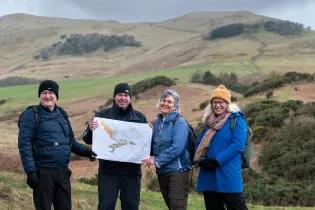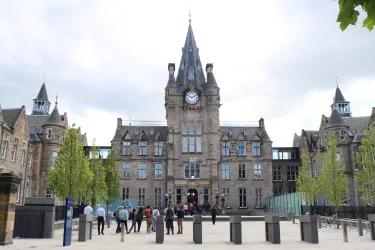As the year draws to a close, we have compiled a rundown of just some of the many compelling stories we told during 2024.
Healthy futures
Research breakthroughs over the past year have demonstrated some of the innovative ways Edinburgh academics are helping to shape what health and care will look like for years to come.
For example, researchers from the School of Engineering may have transformed the treatment of cardiovascular diseases with the development of 3D-printed blood vessels that closely mimic the properties of human veins.
The strong, flexible tubes could improve outcomes for heart bypass patients by replacing the human and synthetic veins currently used in surgery to re-route blood flow.
Read: Artificial blood vessels could improve heart bypass outcomes
Edinburgh researchers have also created nanoscale robots to manage bleeds in the brain caused by aneurysms. The development could enable precise, relatively low-risk treatment of brain aneurysms, which cause around 500,000 deaths each year and can also lead to stroke and disability.
Read: Tiny magnetic robots could treat bleeds in the brain
Other important health insights from 2024 also include the findings that people from isolated parts of the UK and Ireland could have variations in their genetic code that increase their chance of developing certain diseases. The research highlights key links between ancestry and health, particularly among remote communities.
Read: Remote UK regions at risk of genetic disease





